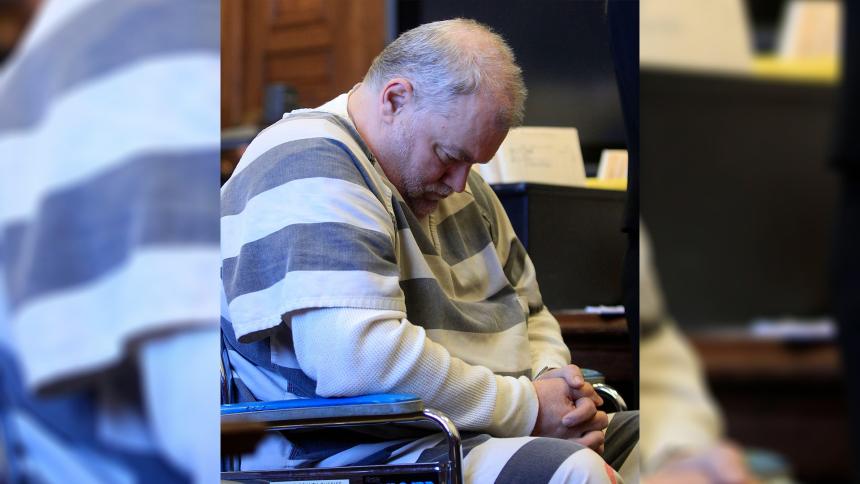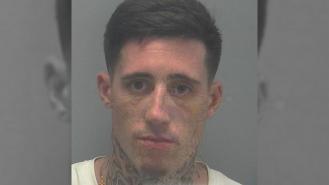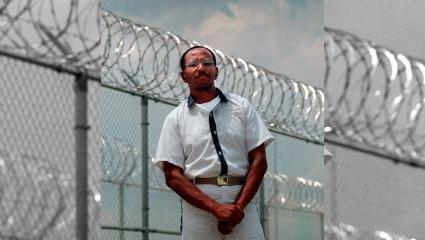
Richard Beasley: Who was the Ohio Craigslist Killer?
We live in a more connected world than ever, which has pros and cons. On the one hand, we can easily keep in touch with friends and family, work from anywhere in the world and consume vast amounts of information in just a few clicks. On the other, chat rooms, internet dating and online advertisements have become lucrative avenues for scammers, fraudsters and even murderers.
Internet homicide refers to a murder where the victim and perpetrator meet online. Thanks to the anonymity of online spaces, dangerous individuals can hide their true nature and motives until it's too late.
One of the most shocking cases is that of 53-year-old Richard Beasley — the Ohio Craigslist Killer. He lured three men to their deaths using a fake Craigslist ad for a non-existent job in 2011.
The disturbing story is featured in Crime+Investigation’s new series A Perfect Scam, which starts Tuesday, 3rd June. Read on to learn more about Beasley’s crimes and sinister motives.
Who was Richard Beasley?
While there isn't tons of information available about Beasley, it's almost certain he wasn't happy. The self-styled street preacher had a troubled past, often using his faith to distract from his violent and deceptive tendencies. Finding it difficult to integrate into society, he lived on a remote 688 acres of farmland in Akron, Ohio.
Despite isolating himself, his crimes were catching up with him. Worried about returning to prison, he devised a shocking plan to evade authorities. With the help of a high-school accomplice, Brogan Rafferty, he would target men online, murder them and steal their identities.
The crimes
Beasley didn't take long to set his plan in motion. He created a fake Craigslist ad promising a job on his farm with a $300-a-week pay check — not a huge amount of money, but more than enough for someone who was down on their luck.
Ever the master manipulator, Beasley deliberately targeted desperate men, believing that nobody would miss them if they simply vanished. Later in court, one of the victim's family members said her brother had thought the job would provide a fresh start, condemning an 'evil and vile' Beasley for exploiting his vulnerabilities.
Beasley ultimately lured three men to their deaths at his remote ranch, murdering them with a gun during the bogus job interviews. Their names were Ralph Geiger, 56, David Pauley, 51, and Timothy Kern, 47. All were hoping for a fresh start and trusted Beasley’s intentions.
Escaping a murderer
Without a doubt, Beasley and Rafferty would have murdered many more people if they could have gotten away with it — but one brave victim managed to escape.
Scott Davis, 49, from South Carolina, fled from the deadly duo after being shot in the arm. Scared and injured, he stumbled through the nearby woods for seven hours, searching for help. He later told reporters: 'I was worried about bleeding to death.'
Thanks to his sheer determination to survive, the pair were eventually arrested and charged with three counts of murder and one count of attempted murder.
The trial
Despite the mountains of evidence against him, Beasley stubbornly maintained his innocence, earning a reputation in court as a true narcissist. When questioned, he stated: 'I want to make sure you understand: I have killed nobody.'
He attended the hearing in a wheelchair — a decision that many believe was a desperate bid for sympathy. Prosecutors saw through the charade and assured the jury: 'Beasley is a master manipulator even up to today.'
The only person who supported Beasley was his mother, who tearfully pleaded with the judge to spare her son the death penalty. She claimed he had been physically, emotionally and sexually abused as a child by neighbourhood kids and a stepfather, which shaped his adult experiences.
A psychologist on the defence supported this claim, reporting that Beasley suffered from depression, alcoholism and poor self-esteem, possibly signifying a troubled and abusive childhood.
The sentencing and aftermath
Beasley spent his whole life deceiving others, including his young accomplice, but this time, he wouldn't get away with it. The jury found him guilty of all charges, and he was sentenced to death. Rafferty was tried as an adult and sentenced to life in prison without parole.
The case raised wider questions about online safety and whether certain platforms were doing enough to protect their users. Throughout the 2010s, internet homicide became more prevalent, with countless individuals senselessly losing their lives.
Subscribe to the Crime+Investigation newsletter today to receive exclusive access to the latest articles, episodes, clips and updates from series including Perfect Scams – delivered completely for free, straight to your inbox.












